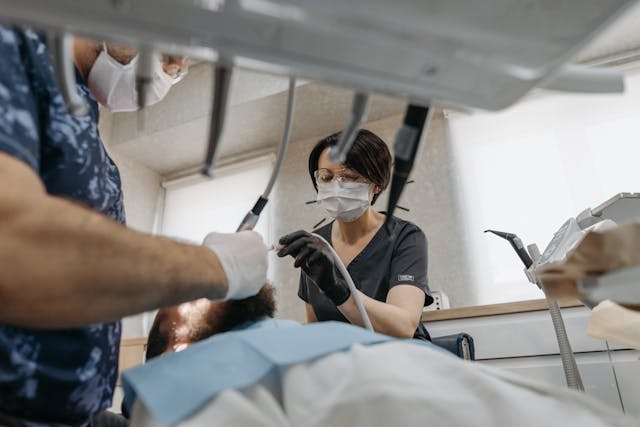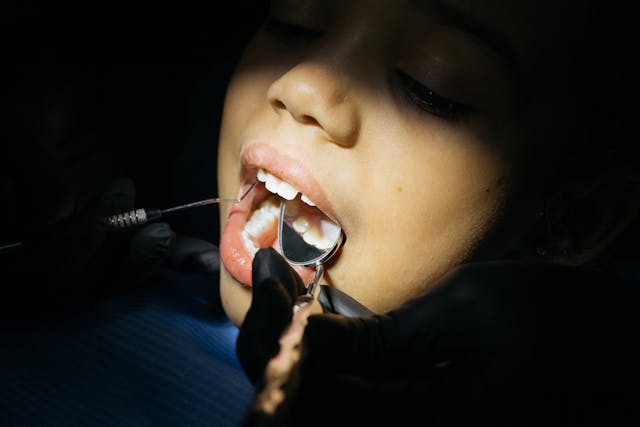The dentist is a place everybody should go, whether you’re a young child or an older adult. The older you get, the more care your teeth need as they age and go through wear and tear as adults in your later years. However, many elderly individuals aren’t sure how often to visit the dentist.
Whether you’re a fan of the dentist or are going just out of necessity, there should be at least a few trips to the dentist every year. Keep reading to learn more about how often elderly adults should visit the dentist, what to anticipate at these visits and more.
How Many Times a Year Should Older Adults Visit the Dentist?
Adults need to visit the dentist more than once a year. According to Harvard, the average older adult must visit the dentist at least every six months if there are no other issues to maintain dental health. That means a typical older adult should appear in the dentist’s seat at least twice a year or more.
Typically, this visit will include some basic examinations and a cleaning of the mouth. The dentist will examine the mouth and teeth and determine if there needs to be more visits to make repairs or check on problematic areas throughout the year.

What Can Seniors Expect at a Dental Visit
While some are eager and ready to head to the dental office, others are more hesitant and want to know what to expect. There are a few standard things you will experience when going in for a twice-a-year checkup.
Here are a few of the most common things you can anticipate at a dental visit:
- Examination: The dentist will perform a basic examination of your mouth, checking for exterior things like the health of your gums and the bleeding.
- X-rays: There are x-rays at least once a year to determine if there are any cavities or other issues in your teeth.
- Cleaning: After the examinations, the dentist will thoroughly clean your teeth.
- Necessary treatments: If there are any necessary treatments, such as crowns or fillings, the dentist will perform them.
- Advice: If there is any advice necessary for caring for your teeth, the dentist will provide information.
These trips are typically straightforward.
Depending on your dentist, what happens at these visits could vary from time to time. However, your dentist should let you know far in advance if there is going to be anything more than what is standard.
How Long Is Too Long Without Seeing the Dentist?
Based on the recommended amount of visits per year, it’s advised to go no longer than six months without seeing the dentist. Regular visits to your dental office are necessary if you want to catch oral issues before they become something more significant or plaque has the chance to grow on the teeth.
The older you get, the more vital it is to keep up with your twice-a-year or more dental visits. Sometimes, your dentist might say it’s too long to go more than three months without a visit–especially if you experience frequent dental issues.
Related: 12 Healthy and Delicious One Pot Meals for Seniors
What Could Happen With Less Frequent Dental Visits?
Some individuals might be interested in visiting the dental office less frequently than twice a year. While that might mean a less stressful experience for those who don’t enjoy the dentist, some serious consequences come if you don’t care for your teeth. You should aim to visit at least twice a year.
If you don’t go to the dentist as often as you should, you are at risk for the following:
- Missed early detection: If you aren’t in the dental office twice a year, you are missing valuable moments of early detection in the teeth and gums. Even cancer diagnoses can be missed in the mouth and lymph nodes.
- Higher cost of treatment: Letting things go unchecked means issues getting out of hand and costing more to care for in the long run.
- Buildup of plaque and tartar: Allowing plaque and tartar to go for too long on the teeth makes it much harder to clean them off and can create cavities and an unfortunate appearance.
- Development of gum disease: Tooth loosening and bone loss can occur if gum disease is left untreated for too long. Your dentist can quickly diagnose gum disease.

What Are Common Dental Issues for Elderly Adults?
Seniors are at particular risk of certain issues in the mouth, and visits twice a year will allow dentists to see, diagnose, help prevent, and repair before they get out of control. These troubles, in particular, are why seniors might need to go in more often at a dentist’s recommendation.
Here are some of the most common dental issues for elderly adults:
- Cavities: Overbrushing, gum disease, and more age-related items can push the gums back and lead to a higher risk of cavities. Typically, the roots are more porous and reveal space for cavities.
- Periodontal disease: Gingivitis has a risk of turning into periodontitis in older adults, which is a severe form of gum disease.
- Dry mouth: Some medications common in seniors can lead to dry mouth,
- Oral cancer: More years of your life raises the risk of oral cancer, which can be left unchecked without dental visits.
- Difficulty brushing and flossing: Seniors are prone to arthritis, which can make it trickier to brush and floss.
Elderly Tips for Proper Oral Hygiene
If you’re an older adult or you know a senior and want to have effective oral hygiene, there are several things to consider. From brushing to flossing, some techniques are more effective at keeping your teeth, gums, and beyond in excellent condition for a longer period.
Here are some of the best ways to keep up with proper oral hygiene as a senior:
- Brush after eating: Whenever you eat, food residue sticks to your teeth. Brush right after eating, especially when enjoying something sweet or with staining capabilities.
- Pick a quality toothbrush: Get a quality toothbrush you enjoy, a bristle type catered to your gum health, and replace the toothbrush or toothbrush head every few months. Ask your dentist for recommendations if you can’t decide which toothbrush is best for you.
- Brush well: Brush for two minutes, angle the brush, brush with circles, and be gentle when brushing.
You May Also Enjoy: 10 Tips for Eating Healthy When Eating Out

















Leave a comment